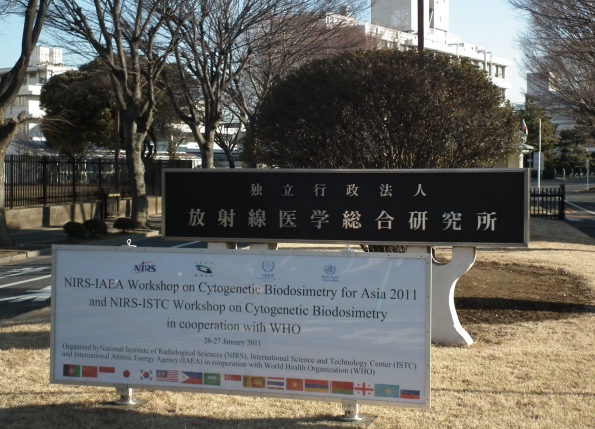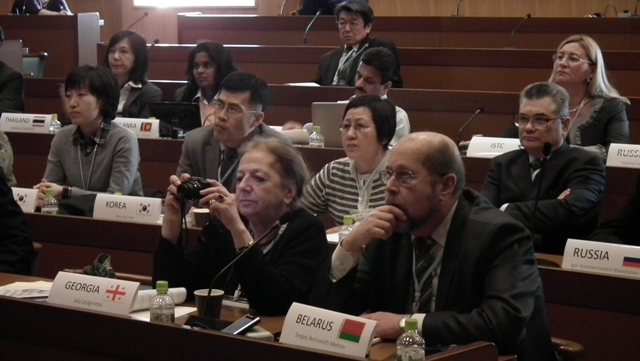NIRS-IAEA Workshop on Cytogenetic Biodosimetry for Asia 2011 & NIRS-ISTC Workshop on Cytogenetic Biodosimetry, 26-27 January, 2011

The need for energy is constantly on the rise, driven by the rapid economic growth of developing countries, many of which located in Asia. Nuclear energy is nowadays seen by many as a valid and cleaner source of electricity as opposed to fossil fuels that release fine particles in the air and greenhouse gases. The construction of many new nuclear power plants is underway and many more are planned in a near future. But nuclear energy doesn’t come without certain risks, as the Chernobyl disaster bluntly showed the world.
There are also new concerns regarding emergency response against the threat of malicious acts using radioactive materials or attacks toward nuclear power plants that could have serious consequences on public health. The medical bodies around the world have to be ready for such events. The rapid estimation of radiation levels would be essential in the case of such accidents. Chromosome analysis is one of the best methods for dose estimation. Although the number of the experts and the information in this field are limited and the establishment of a system to exchange information would allow a smoother medical response if added to biodosimetry.
In order to address this question, ISTC, the International Atomic Energy Agency (IAEA), the World Health Organization (WHO) and the Japanese institute NIRS organized a second workshop (1st in 2008) to exchange information on researchers’ knowledge and skills in the field of cytogenetic biodosimetry and to discuss the latest approaches for dose estimation by chromosome analysis for radiation exposures. It is aimed to increase the collaboration and networking between Asian countries and member states of ISTC, especially for biodosimetry in case of mass casualties.



